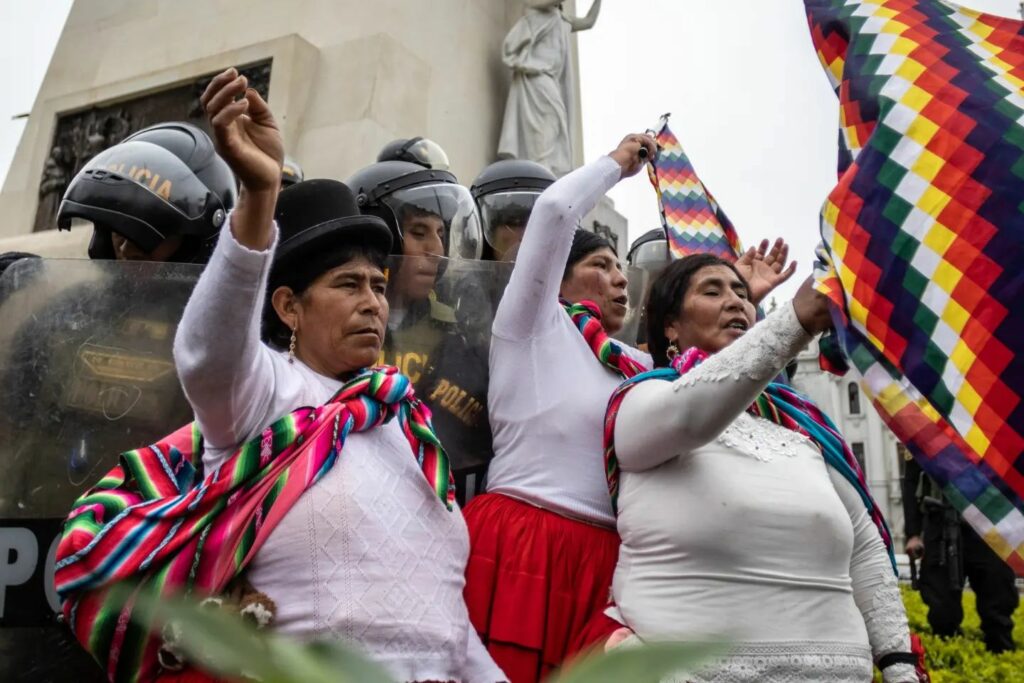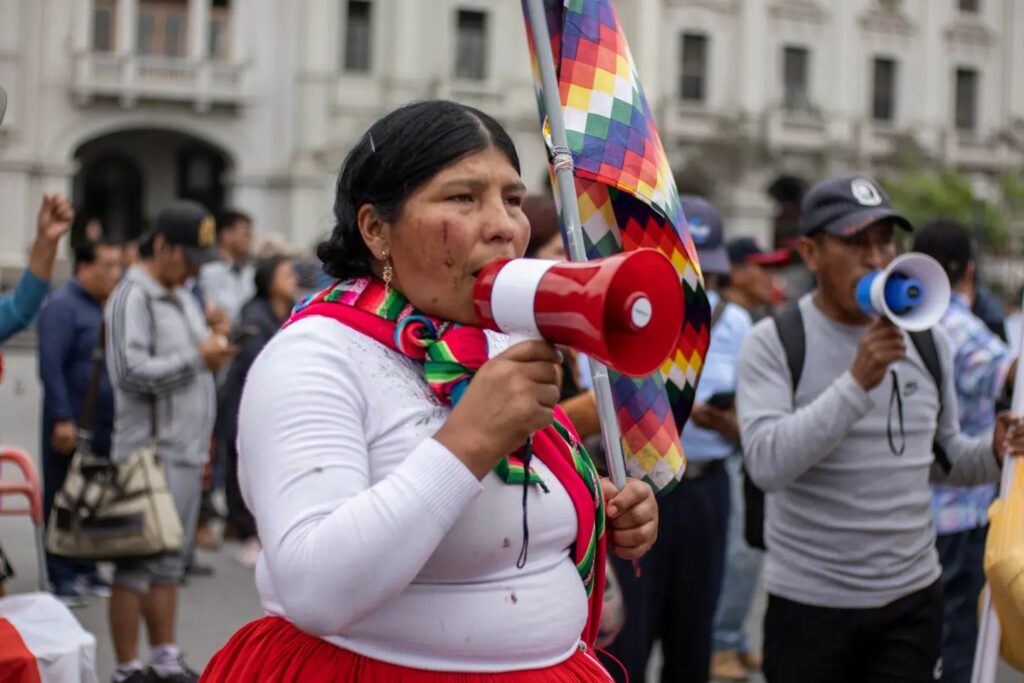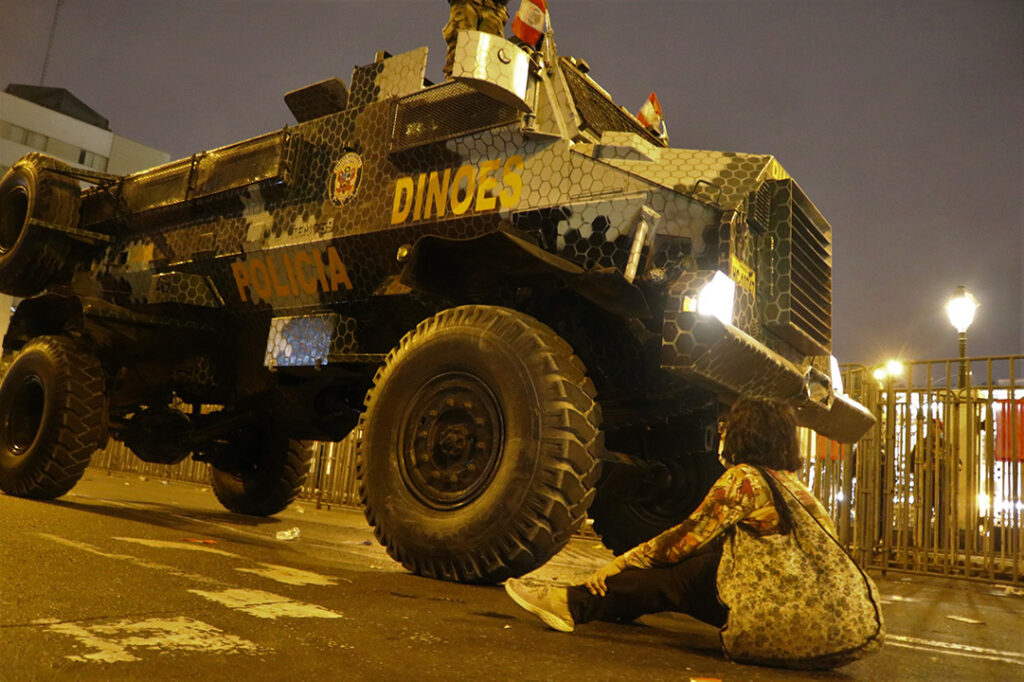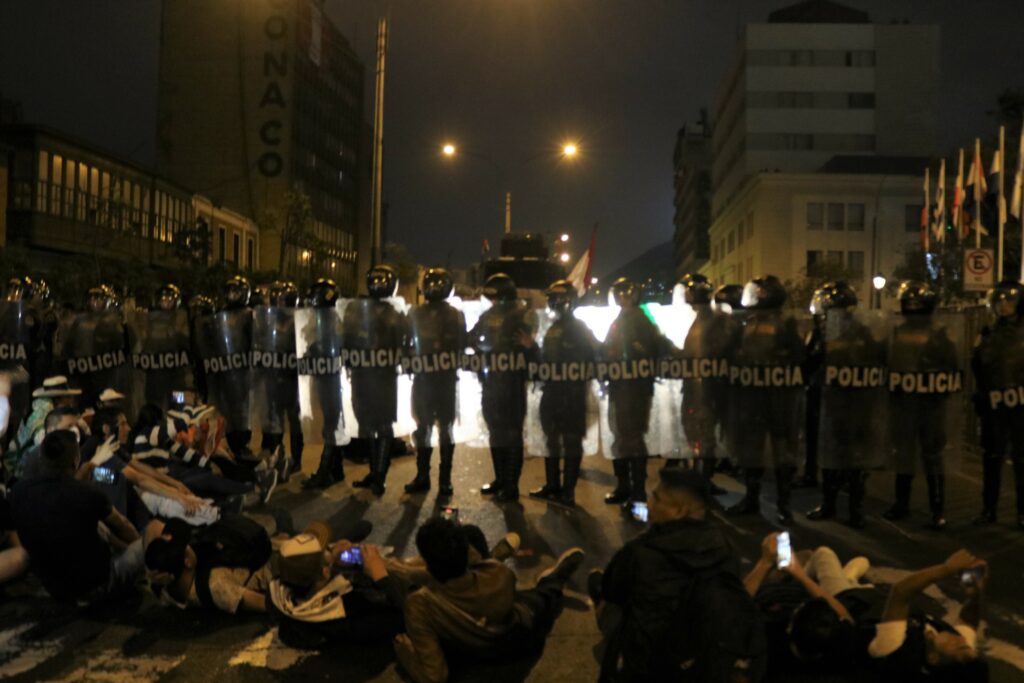
Autonomy and Resistance
(Español) Frayba denuncia ante la ONU, al Estado mexicano por patrón de tortura y fabricación de culpables contra defensores indígenas en Chiapas
San Cristóbal de Las Casas, Chiapas
3 de agosto de 2023
Boletín No. 17
Denunciamos ante la ONU, al Estado mexicano por patrón de tortura y fábrica de culpables contra defensores indígenas de derechos humanos
- Presentamos ante el Grupo de Trabajo sobre Detenciones Arbitrarias los casos de Manuel Gómez Vázquez, Base de Apoyo del EZLN y los 5 defensores del territorio de San Juan Cancuc.
El Centro de Derechos Humanos Fray Bartolomé de Las Casas (Frayba), presentó una denuncia ante el Grupo de Trabajo sobre Detenciones Arbitrarias (GTDA) de la Organización de las Naciones Unidas (ONU) en la que posicionamos dos casos que ejemplifican que en Chiapas existe un patrón de fabricación de culpables para criminalizar a defensores de derechos humanos de pueblos originarios.
El primero de ellos es el de Manuel Gómez Vázquez, Base de Apoyo del Ejército Zapatista de Liberación Nacional (EZLN) quien permanece Privado Arbitrariamente de la Libertad (PAL) desde diciembre de 2020. Manuel fue acusado falsamente de un delito que no cometió, sometido a actos de tortura, desaparecido de manera forzada, y después procesado penalmente.
De acuerdo con una investigación de la Junta de Buen Gobierno “El Pensamiento Rebelde de los Pueblos Originarios” en Nueva Jerusalén (JBG Nueva Jerusalén), la acusación en su contra fue un acto de criminalización a su adherencia zapatista. A más de dos años y medio de su detención es mantenido en reclusión de manera arbitraria bajo la medida cautelar de prisión preventiva, es decir sin haber recibido una sentencia, aún cuando la Constitución mexicana establezca un límite de dos años.
El segundo caso presentado son las detenciones de Manuel Santiz Cruz, Agustín Pérez Domínguez, Juan Velasco Aguilar, Martín Pérez Domínguez y Agustín Pérez Velasco, cinco indígenas tseltales del municipio de San Juan Cancuc, defensores de derechos humanos, que fueron sustraídos de su comunidad por elementos policiales acompañados de la Guardia Nacional y las Fuerzas Armadas, se inventó un informe de detención con hechos falsos acusándolos de una supuesta detención por portación de drogas en otro municipio. Los detenidos fueron después procesados y sentenciados por un homicidio que no cometieron. El objetivo de esta criminalización fue el de enviar un mensaje ejemplar hacia la población a fin de que no se organicen contra la imposición de proyectos de infraestructura carretera en su territorio y lo defiendan de la militarización.
La documentación del Frayba confirma el patrón sistemático de criminalización a defensores indígenas por el gobierno de Chiapas entre cuyas características se encuentra: participación cómplice de la Fiscalía de Justicia Indigena utilizada para el control de los pueblos a través de la criminalización del ejercicio de sus derechos políticos, a la autonomía y autodeterminación como pueblos originarios, acusaciones falsas, tortura, uso excesivo de la prisión preventiva oficiosa y de testigos falsos, participación de autoridades comunitarias, Privaciones Arbitrarias a la Libertad (PAL), detenciones con la participación de efectivos del Ejército, la Guardia Nacional (GN), un Poder Judicial cómplice sin acción judicial en su conjunto son detenciones arbitrarias que buscan castigar ejemplarmente la defensa de los derechos humanos, de la tierra y el territorio.
Para el Frayba, la criminalización a defensores comunitarios no afecta solamente a las personas y sus familias, sino que se trata de una agresión a toda la comunidad, ya que el gobierno con sus instituciones de justicia intentan generar un estado de shock hacia la colectividad, sosteniendo un mecanismo de represión, buscando anular a quienes defienden el territorio y la vida desde su propia identidad y formas de ver el mundo como parte de su ser pueblos originarios.
Llamamos la atención hacia el Estado mexicano a través de la denuncia presentada ante el Grupo de Trabajo de la ONU, con el objetivo de censen las patrones de criminalización y represión hacia los pueblos originarios, en específico hacia las personas vulneradas en sus derechos por estos mecanismos de violencia institucional, además de que se han resarcidos los derechos humanos bajo los ms altos estándares internacionales incluidos el de la libertad absoluta.
(Español) Un régimen policializado contra la protesta popular en Lima
Fuente: Avispa Midia
Por Javier Bedía Prado
En portada: Participantes de las manifestaciones en la denominada “Toma de Lima”. Fotos de Lucha
Las protestas contra la dictadura de Dina Boluarte se reactivaron en la mayoría de regiones del Perú. En la capital, donde las jornadas de la denominada toma de Lima fueron masivas, se desplegaron 8,000 policías. En el resto del país se movilizan más de 21,000 agentes armados.
En vísperas de las fiestas patrias, se registraron manifestaciones en 59 provincias y bloqueos de vías en 64, de acuerdo a la Defensoría del Pueblo. Hasta el 29 de julio, las marchas en el Centro de Lima dejaron decenas de heridos y detenidos. Las detenciones con formas de secuestros, por parte de policías sin uniforme y en vehículos particulares, se han normalizado. Cuatro periodistas recibieron disparos de perdigones y otros dos comunicadores fueron intervenidos.

Durante el discurso a la nación de Boluarte, el 28 de julio, las movilizaciones en los alrededores de las sedes del Ejecutivo y el Congreso fueron reprimidas. “Estamos planteando el cambio de Constitución, es lo fundamental. Hay poderes detrás de esta dictadura, no solamente es la oligarquía nacional, está Estados Unidos, por eso es que el Ejecutivo y Legislativo permiten la presencia de soldados norteamericanos”, declaró un manifestante de Puno.
Te puede interesar – Militares de Estados Unidos en el Perú como respaldo a más represión
Un activista de Lima norte señaló el vínculo de la “dictadura pactada entre el Congreso y la presidencia” con el poder económico de las actividades extractivas: “No queremos ser un país extractor. Se quiere entregar nuestros recursos a los países que financian a Keiko Fujimori y los políticos que entregan el país”.
Desde un gobierno de facto policializado, el terrorismo de Estado apunta a intimidar las protestas en Lima bajo la amenaza de cárcel. Es el mensaje implícito en el caso del joven brigadista Óscar Bellido, detenido durante cinco días en condiciones contra sus derechos fundamentales, sindicado sin pruebas de escribir “Dina asesina” en una pared, para quien la fiscalía pidió nueve meses de prisión preventiva y una posible pena de hasta ocho años de cárcel. El estudiante fue liberado por el Poder Judicial.
Distinta es la represalia contra Vladimir Molina, también brigadista, a quien lo registraron cuando lanzó una bengala a los policías. La Corte Superior de Justicia de Lima dictó nueve meses de prisión preventiva contra él. De esta manera, el régimen criminaliza tanto la protesta pacífica como acciones a las que, en otras circunstancias, se aplican medidas menos severas.
Las delegaciones de todas las localidades peruanas, principalmente del sur andino, continúan llegando a la ciudad bastión de la dictadura cívico-militar-empresarial que es responsable del asesinato de 50 personas. La Policía hostiga a las comitivas durante los trayectos y en los locales de acogida. La fuerza contra las comitivas quechuas y aymaras se ejecutó, como en meses pasados, con mayor violencia. La imagen de mujeres indígenas empujadas y arrojadas al suelo por policías en el Centro de Lima grafican la represión racializada.
Discursos y prácticas de intimidación
Las demandas del pueblo movilizado son la renuncia de Boluarte, el adelanto de elecciones, el cierre del Congreso y el cambio de Constitución. La liberación y restitución de Pedro Castillo en la presidencia es una consigna firme en las provincias andinas y amazónicas, pero desestimada por la organización regional más representativa del sur peruano.

“Es una agenda nacional, pedimos de inmediato las elecciones generales, también una consulta popular para hacer una asamblea constituyente mediante un referéndum, para una nueva Constitución, no pedimos la restitución de Pedro Castillo desde la Macrosur”, señaló a este medio un dirigente por Cusco de la Macrorregión Sur, que reúne a siete regiones del país.
Un régimen autoritario, con niveles de rechazo de más del 80%, desconoce la voz del 80% de la población que respalda el adelanto de elecciones y un 70% que está a favor de una asamblea constituyente, reclamos que aún estigmatizan y que reprimieron con violencia letal en diciembre y enero últimos.
“Cusco tiene gas de Camisea, oro, cobre, plata, y no se beneficia con nada, todavía la población sigue siendo pobre y hay extrema pobreza, por eso estamos en lucha. La situación económica y alimentaria están en crisis”, añadió el representante cusqueño. Un ciudadano de Puno subrayó la posición de los pueblos ante el modelo económico que expropia recursos y territorios: “El litio de Puno tiene que salir transformado, no solo extraerlo. Es considerado como soberanía de los pueblos originarios, quechuas, aymaras y amazónicos. Queremos que todos los minerales e hidrocarburos sean declarados patrimonio soberano de los pueblos”.
La dictadura insiste en acusar terrorismo detrás de la legítima protesta popular. Desde Boluarte a la cúpula policial y militar, la criminalización es el único discurso, a pesar de ser expuestos en sus mentiras. Las comunidades andinas y amazónicas fueron, precisamente, las que contuvieron a Sendero Luminoso y las que más sufrieron la represión contrainsurgente. En Puno, epicentro de la oposición, la organización subversiva nunca ganó terreno durante los años de la guerra interna.
Allí las manifestaciones se retomaron con medidas de fuerza: el puente de Ilave, en la frontera con Bolivia, fue bloqueado por días. En la región Huancavelica, en el sur andino, hubo enfrentamientos entre manifestantes y uniformados.


En su discurso a la nación, Boluarte mintió al incluir entre las víctimas del estallido detonado por su gobierno ilegítimo al policía asesinado en Juliaca (región Puno) por sus compañeros, quienes quemaron el cadáver al interior de un patrullero y atribuyeron el crimen a manifestantes. También contó a los siete policías asesinados por narcotraficantes en venganza por robos de mercadería, en zona de emergencia.
Además de los bonos a policías y presupuestos privilegiados para el Ministerio del Interior (Mininter), otra señal del poder de la institución dentro del régimen es la propuesta del Ejecutivo de la creación de la Policía del orden y seguridad, que constaría de efectivos con un año de preparación y licenciados de las Fuerzas Armados, para “prevención y cuidado de las calles, en la ciudad y las zonas rurales, como las comunidades nativas”, de acuerdo al Mininter.
En el papel, una nueva categoría de la Policía Nacional del Perú (PNP); en la práctica, se apunta a una suerte de escuadrón armado paralelo, pues el Estado y los mandos policiales no tendrían responsabilidad penal por su accionar. El Congreso, a la cabeza del gobierno de facto en alianza con el Ejecutivo, tiene un plazo de 120 días para aprobar la propuesta. Todo indica que la iniciativa pasará y que el próximo año, con una breve instrucción y armas, serán cientos los nuevos agentes que actuarán sin una cadena de mando que obedezca a la PNP y el Mininter. Desde las organizaciones sociales se prevé que el cuerpo policial será militarizado y usado con fines políticos, para intimidar y perseguir a las poblaciones estigmatizadas, tanto en protestas como en cualquier escenario.





